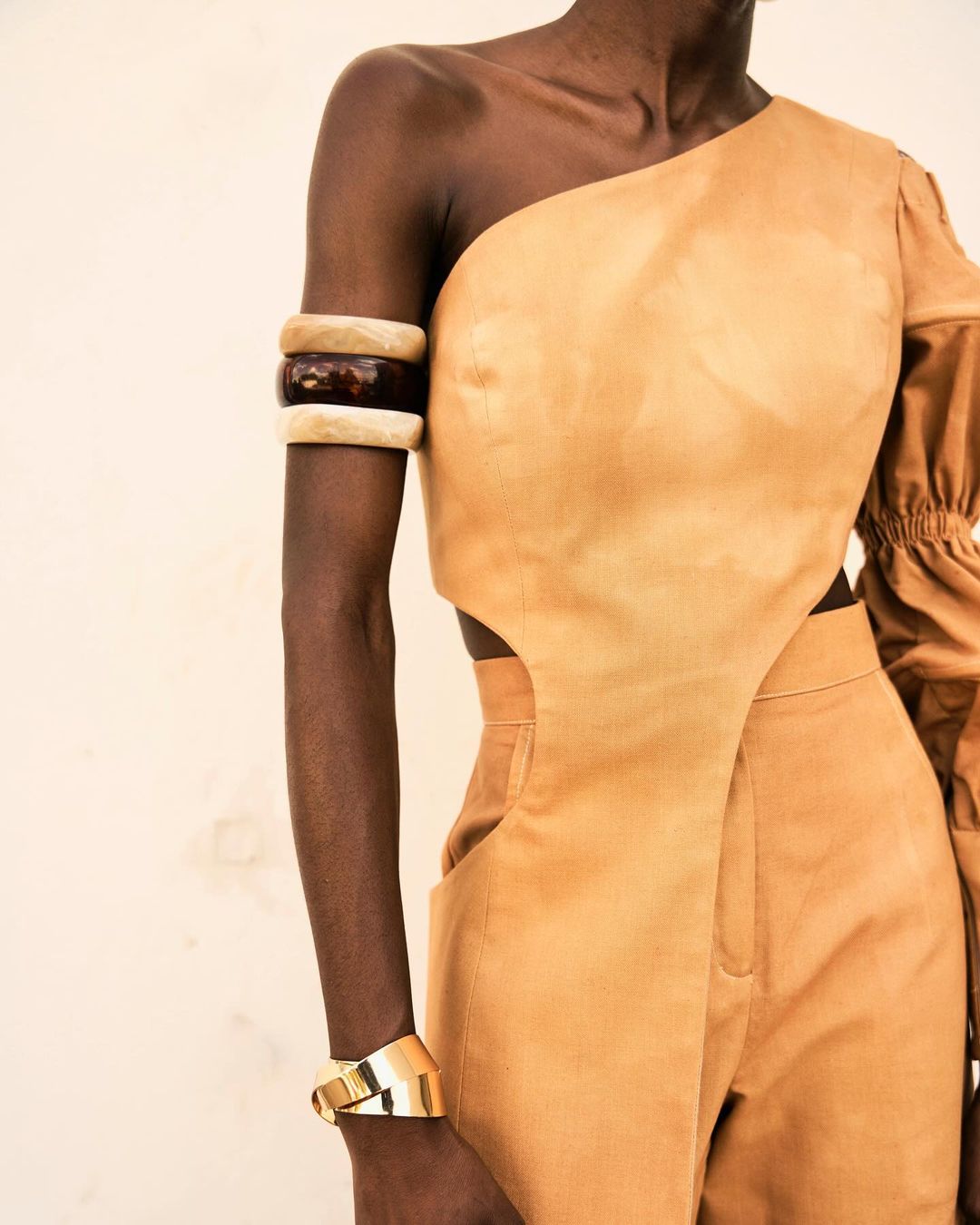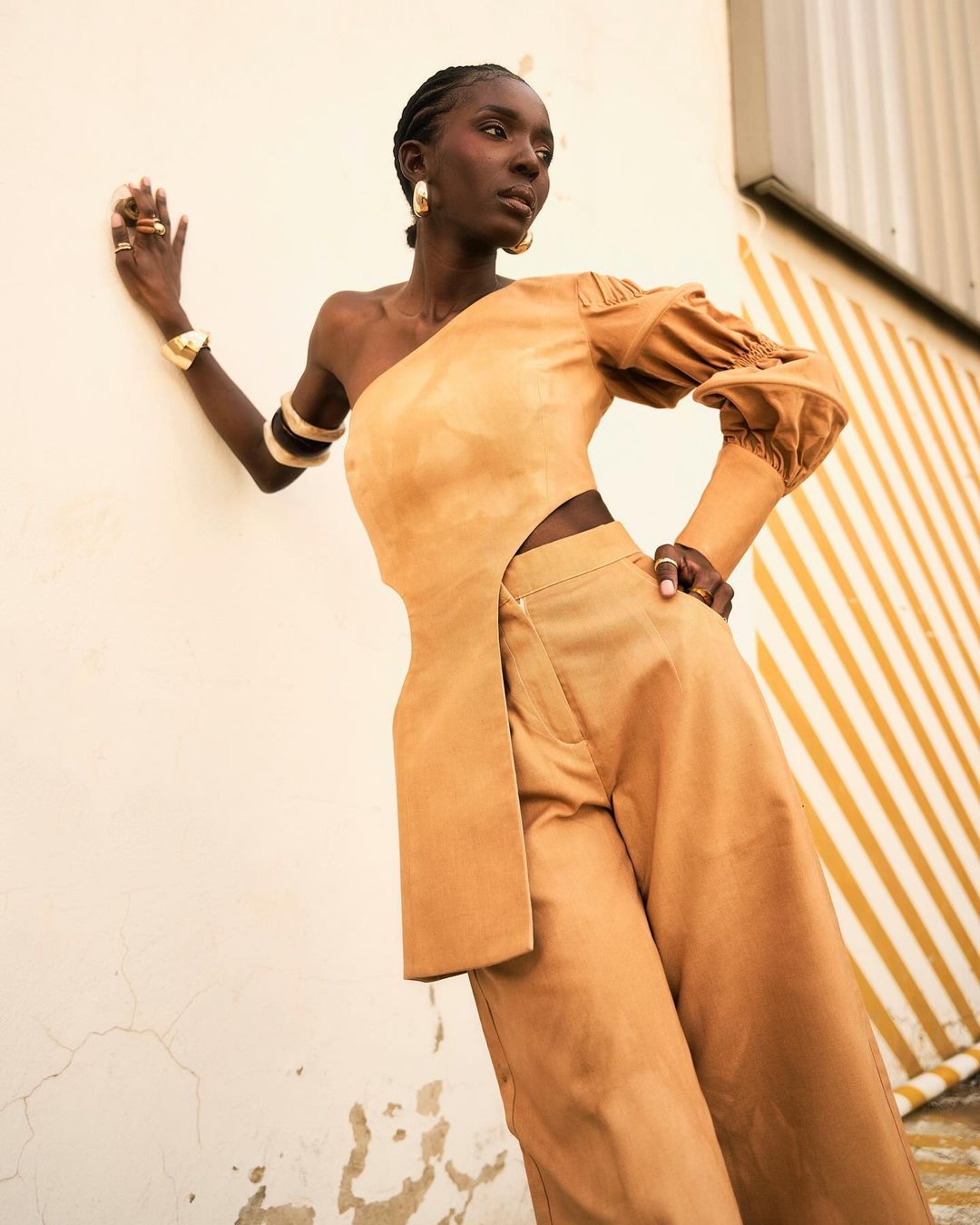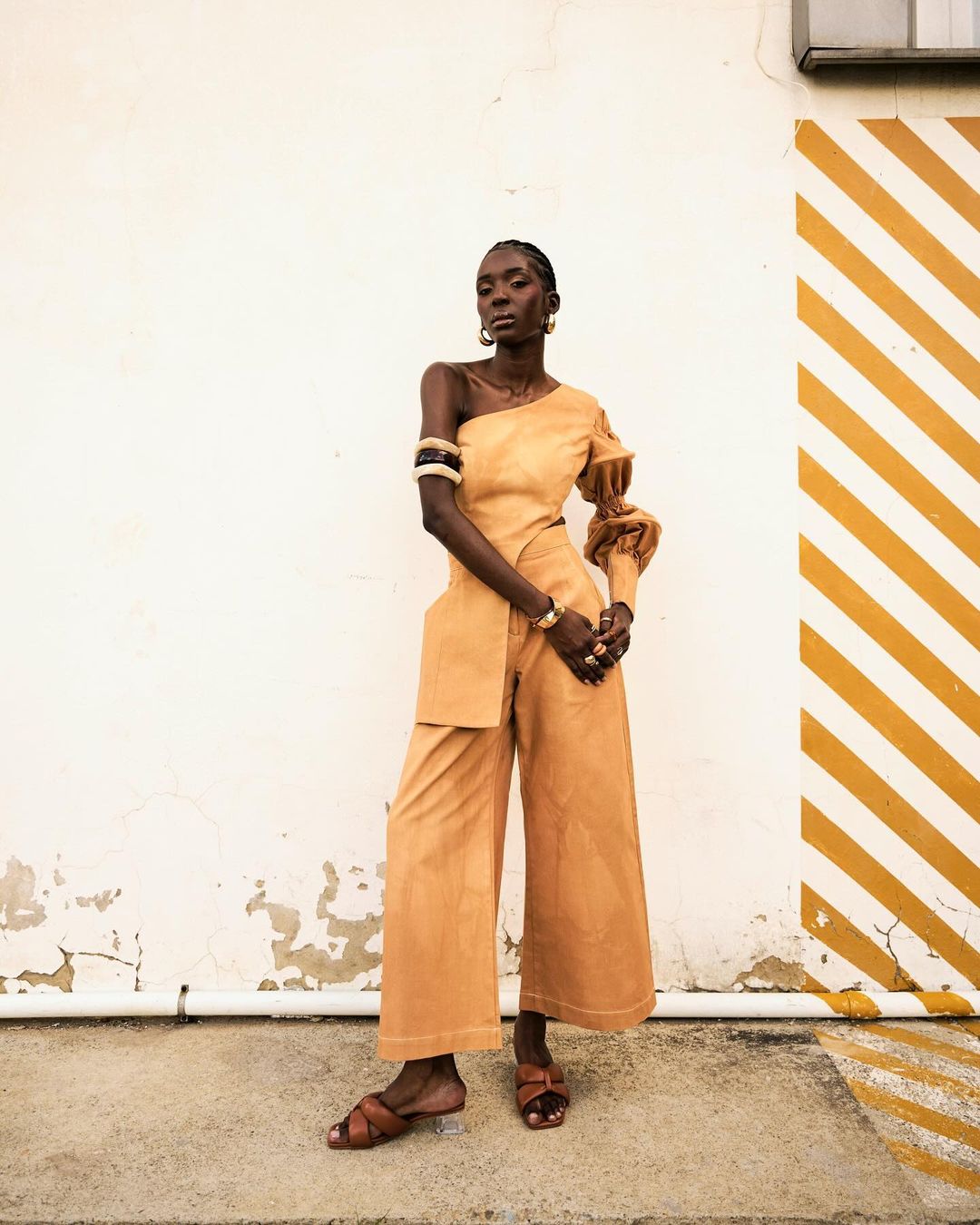One of the best things about social media is that it exposes us to creatives that may otherwise have been rather obscure. The little-known Afro-centric, sustainable, Black Femme-led brand, SEOKEΞTSA caught my eye with their succinct and well-curated Instagram feed. I reached out to Lesego Seoketsa, the visual artist who is also the brand’s founder and designer for an interview about her latest creation, the Kwa Pikoli capsule collection—its origins, thematic underpinnings, and transformative aims.
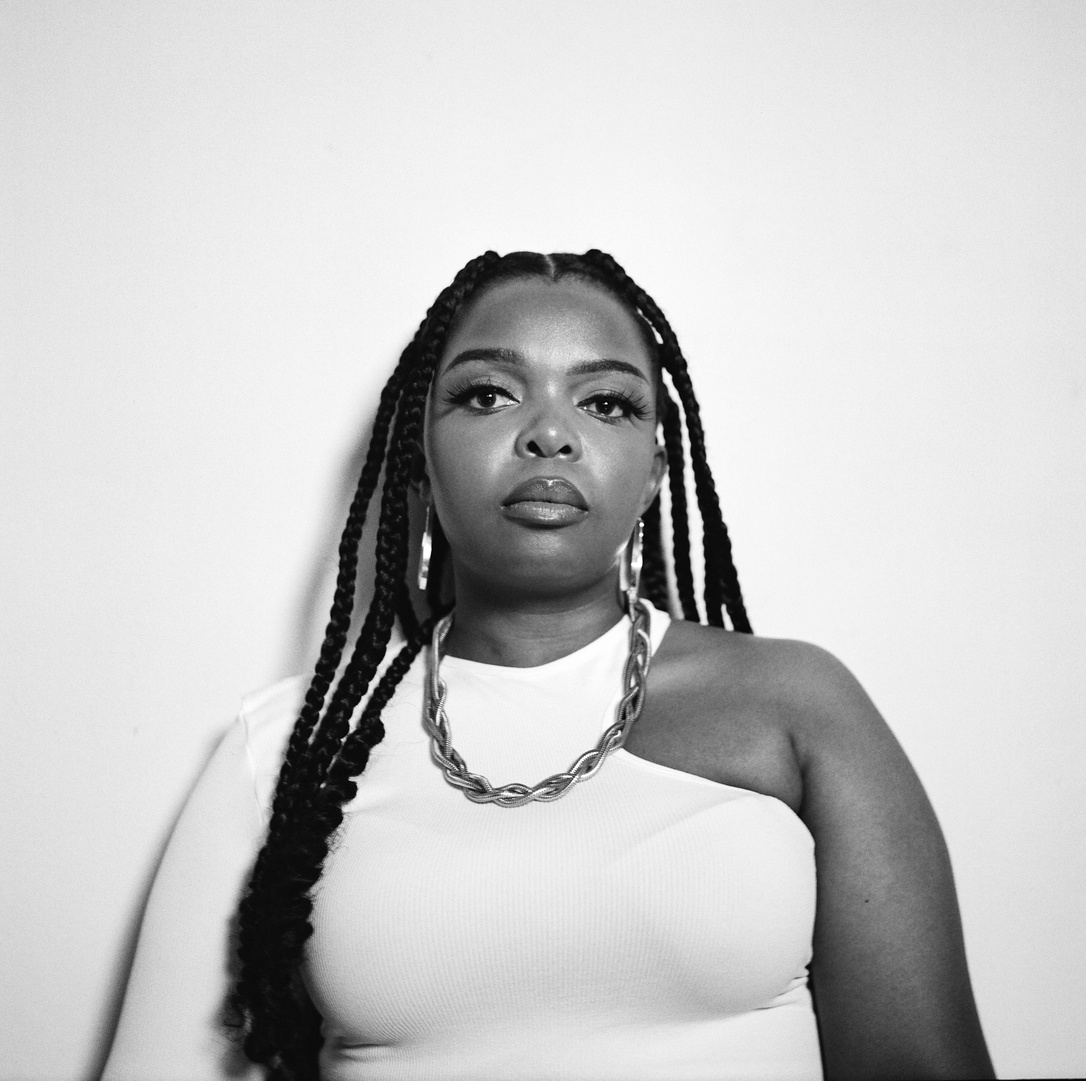
Thembeka Heidi Sincuba: Tell us about the origins of your brand and how it has evolved to encapsulate the essence of Kwa Pikoli in this capsule collection.
Lesego Seoketsa: My brand started a year after I graduated from Stadio (formerly known as LISOF). I took a break to figure out how to actually start a fashion brand, but now I am back. I have always known that I want to tell stories through clothing, I just needed to find the confidence to do so. I drew inspiration from my environment, upbringing, as well as my family’s history to create this brand, and more importantly this capsule collection. I did my best to incorporate South African indigenous architecture and colours of the landscape in the garments, so I referenced a small village called Kwa Pikoli to get an image of which direction the designs would go.
THS: Can you share any anecdotes or experiences of the creation of the collection?
LS: Honestly, creating this capsule hasn’t been a smooth road. Firstly, the construction of the garments was challenging; my tailor and I had to figure out how to create dimension and structure from upholstery fabric. I also ran out of money during production because I needed to buy studio equipment to get the quality of the garments right. I started making the clothes in 2022 and completed the process in January 2024. The delays really chipped away at my confidence because I had no immediate control over them, however, I made sure to finish this capsule despite the failures along the way. Starting a business with little to no capital requires a lot of faith, patience, and confidence, and I guess the journey of my brand was about building these virtues. My character has grown immensely through this process, having a dream and translating it into reality requires some courage.
THS: What motivated you to choose Pedi/Pikoli in the Eastern Cape as the focal point for this collection, and how does it resonate with the brand’s roots?
LS: My mother and her forefathers are from Pedi. She has shared with me the history of how our ancestors navigated their daily lives, and how they conducted their spiritual practices. Pikoli is a village that is rich in my maternal history, therefore it has validated my identity and has given me a point of reference for the DNA I carry. Apartheid and colonialism have robbed many black people of knowing where the land of their forefathers is, and this has created a gap in understanding who our people were, and what stories we carry in our bloodlines. Pikoli resonates with the brand’s roots, as it is a foundational point for identity, I can only know where I am going as a designer if I have some knowledge or semblance of where I come from.
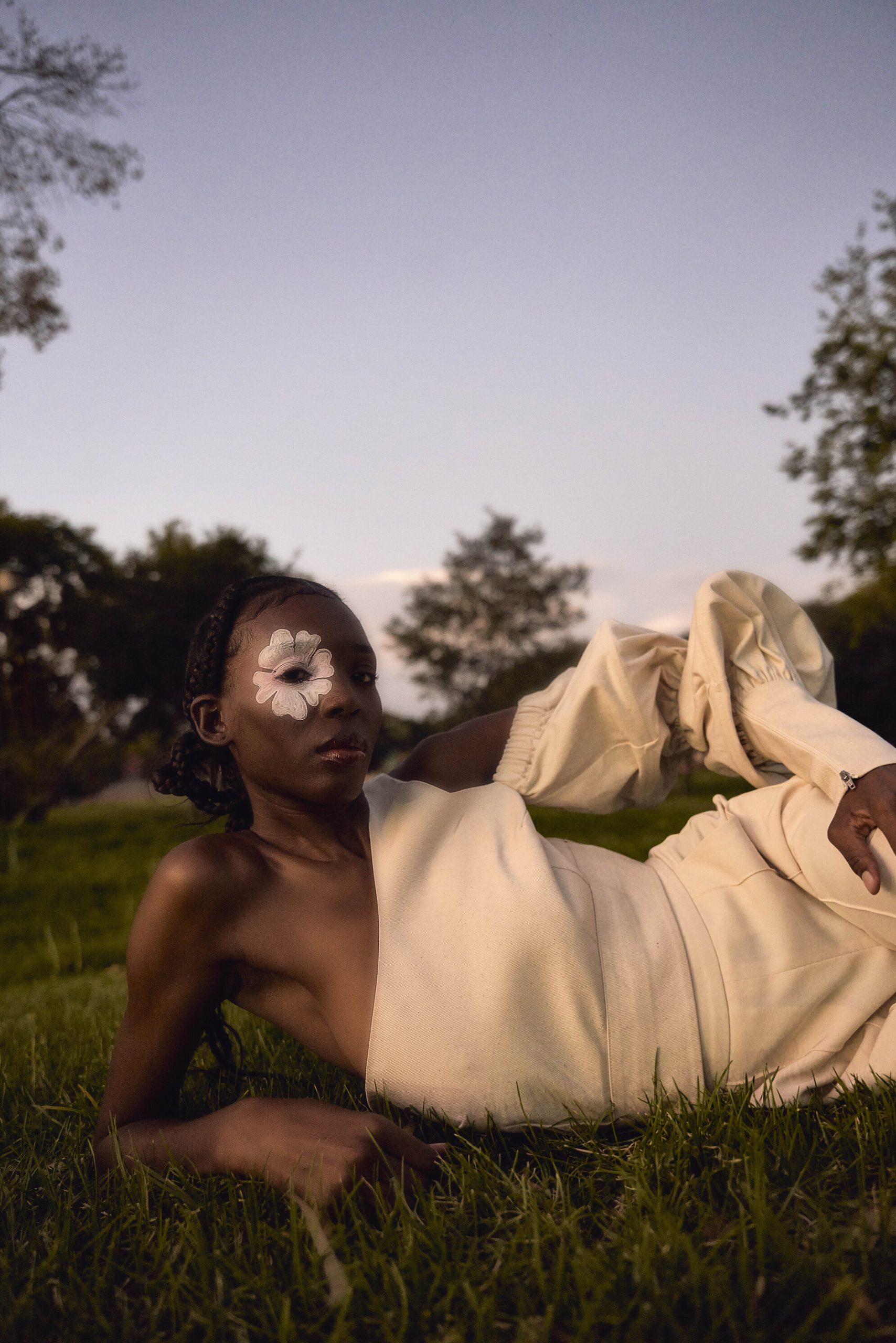
THS: How does your brand’s ethos align with the concept of honouring ancestral lineage and the natural environment, as portrayed in the collection?
LS: Ancestral lineage and the natural environment are the essence and core of my brand’s ethos. I believe that nature is the template for life. Plants, mountains, and landscapes form and grow in their own natural order without our permission. As humans we also don’t get to choose our ancestral lineage, we find ourselves here on Earth. It is as if there is an unknown force conspiring for natural beings and things to evolve in ways that our egos have no control over. I am coming to understand that the answers to life’s mysteries are in the patterns that nature and our ancestral lineages show us, ours is to unravel and see what these answers mean, or to create meaning out of them.
THS: How does the collection embody the brand’s commitment to sustainability and ethical practices, considering its ties to nature and ancestral identity?
LS: When I made the garments, I made sure to source fabrics locally, in my community. I also used mostly non-synthetic traditional materials that have longevity. I intend to create two collections a year (at most) because I believe that fast trends lead to the overconsumption of fashion, and that creates landfills. All the garments are hand-made and I reused patterns and water for the fabric. I am committed to finding more environmentally sustainable ways to create clothing as I go. It won’t happen overnight, but I am keen on making this an ongoing practice. I resonate with the thought of treating nature with compassion because it has assisted our ancestors in their survival, and I believe that it can assist us if we are receptive. Sustainable practices are for the benefit of ourselves collectively, as well as nature.
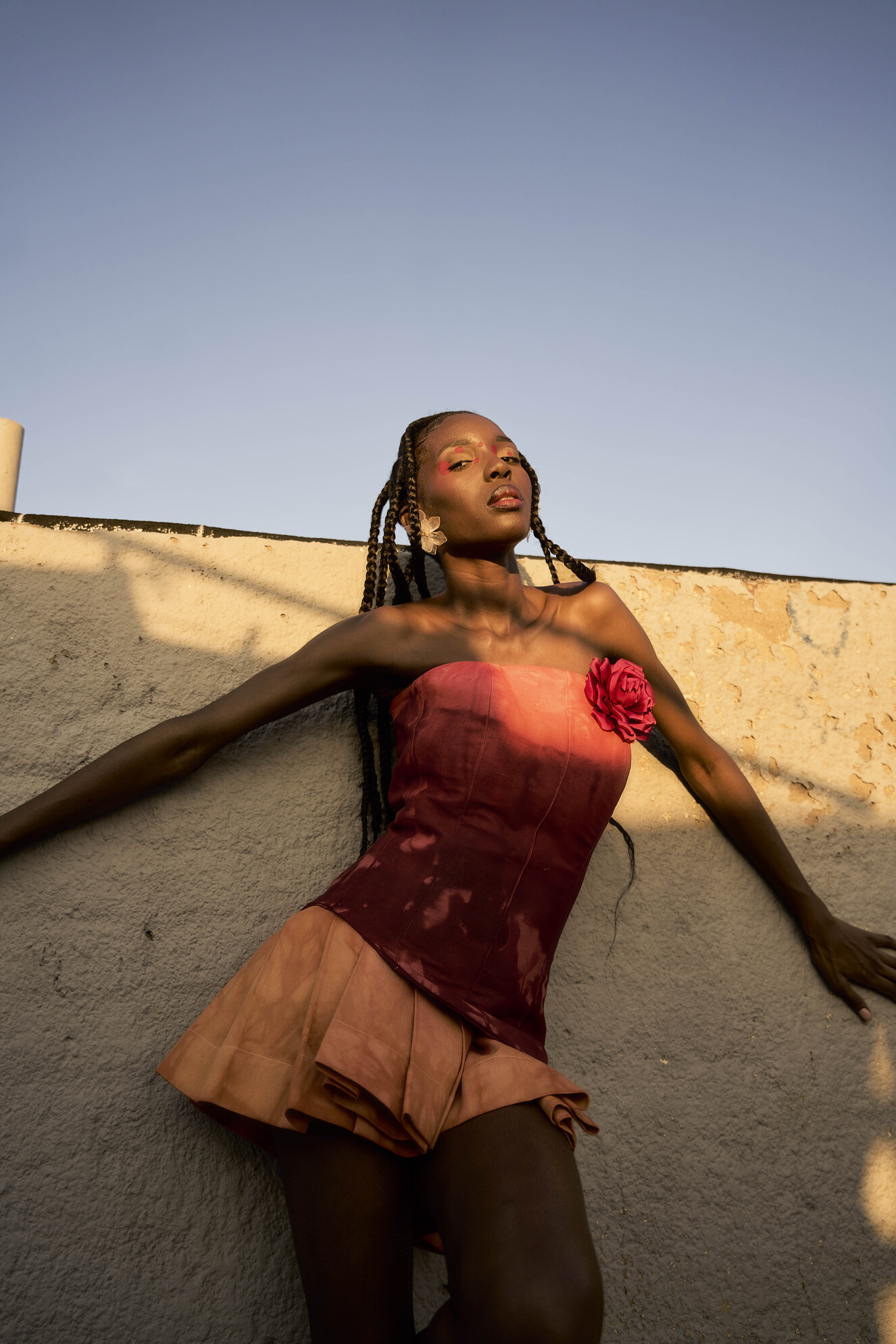
This brand’s authentic back story not only pulls at the heartstrings but bodes brilliantly well for its brand loyalty prospects. SEOKEΞTSA’s Kwa Pikoli collection celebrates maternal roots and personal heritage with sustainable practices at their root and quietly elegant garments that reflect Pikoli’s timeless landscape and culture. As they continue to develop their aesthetic and quality, the brand’s perspective on ancestral lineage and environmental care has the precious potential to propagate new forms of cultural expression and preservation.
Credits:
Directors: Simba Takaedza, Wesley Takaedza
Make-Up Artist: Amka Tonia
Model: Josefina Fuca
